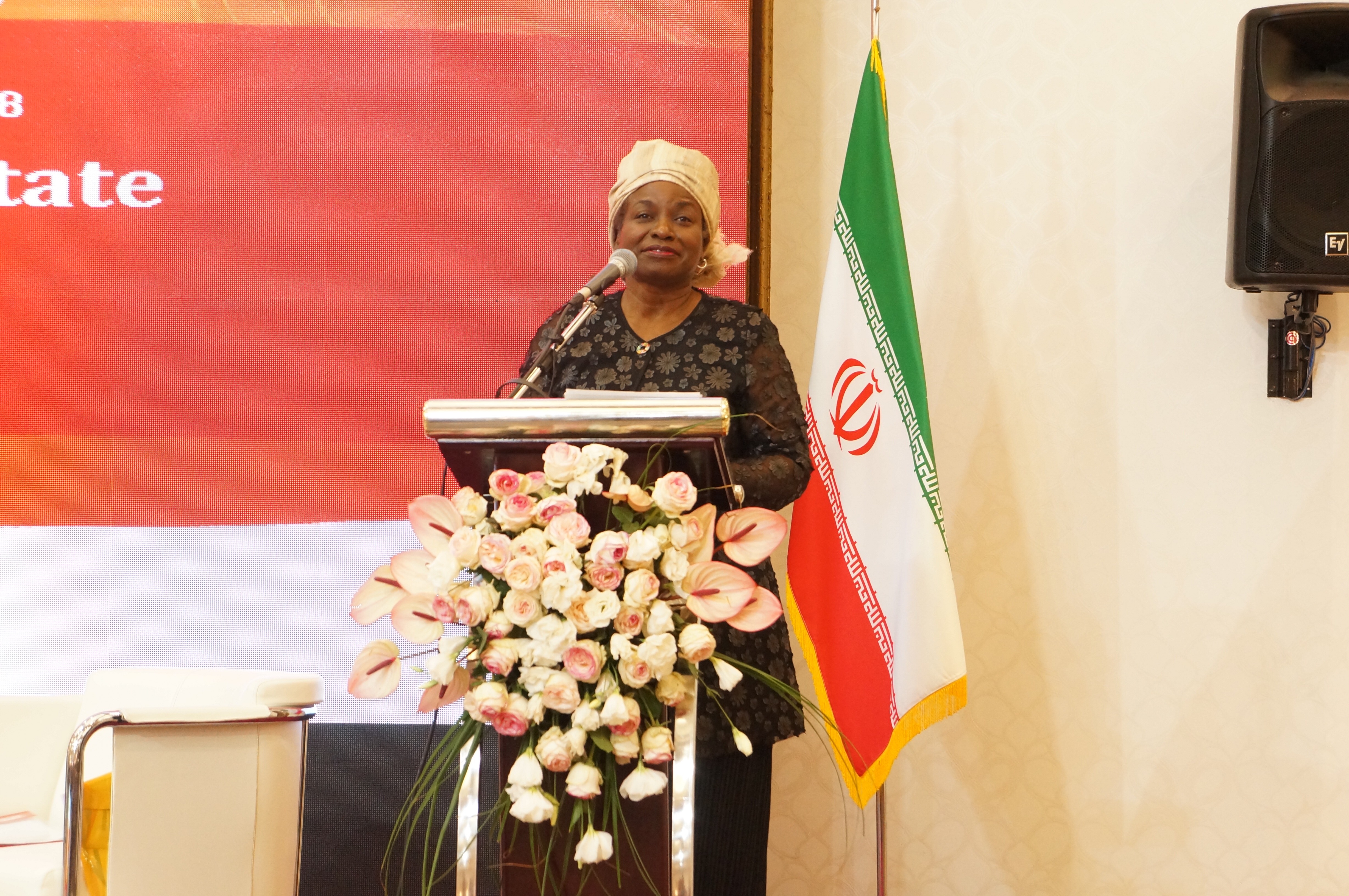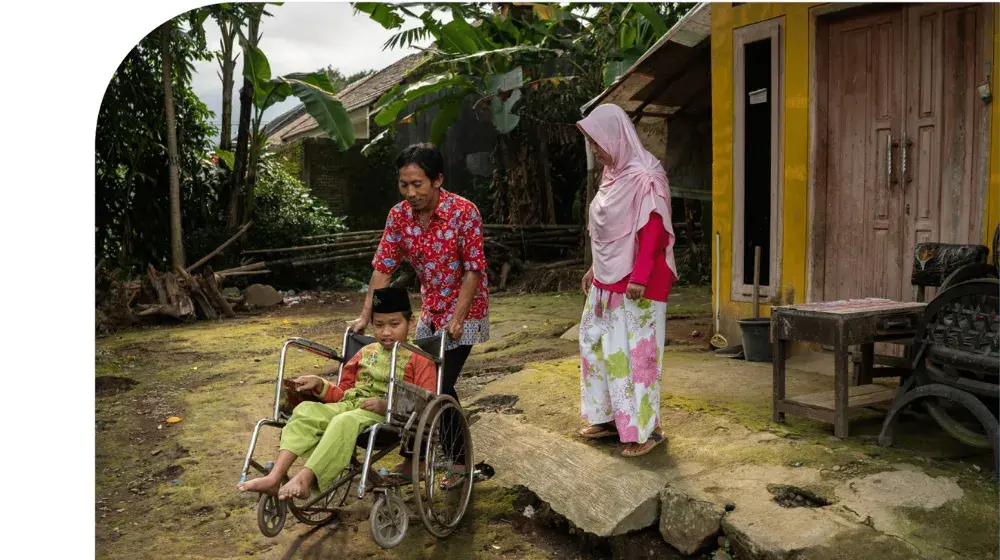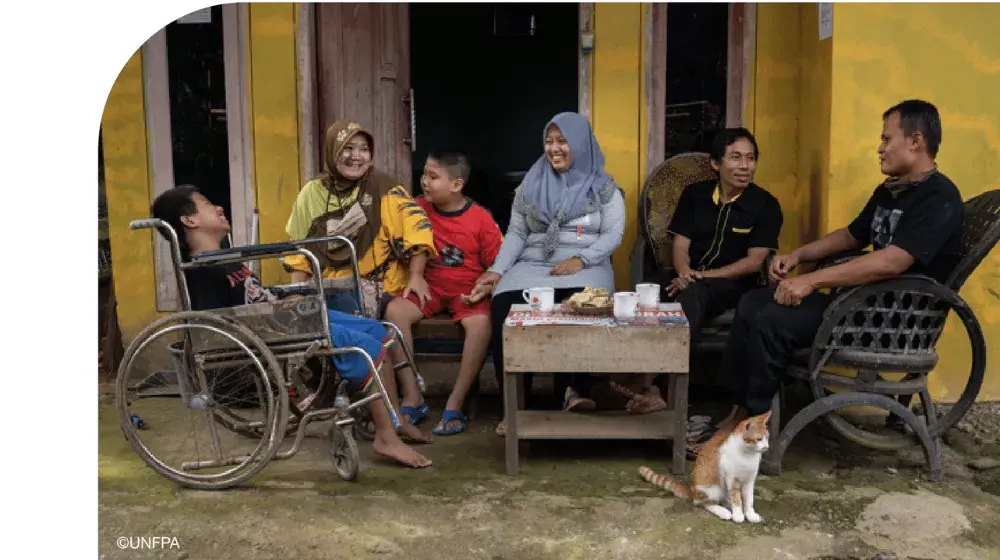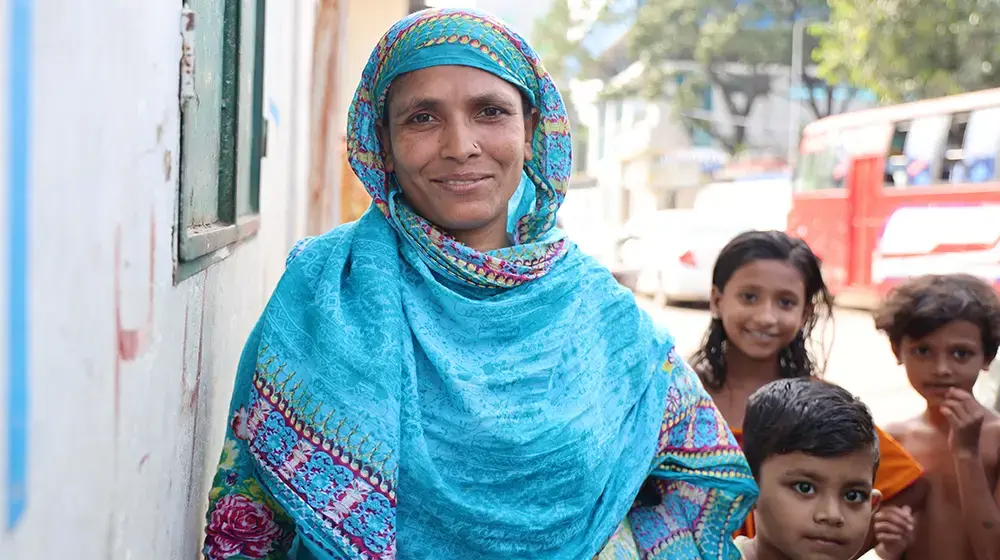Closing remarks by Natalia Kanem, UNFPA Executive Director
HelpAge Asia-Pacific Regional Conference, Tehran, Iran, October 24, 2018

Image: UNFPA Iran
It is a pleasure to be able to join you all for the closing of this important gathering. UNFPA is proud to have co-hosted this conference, together with HelpAge International, and the State Welfare Organization and Ministry of Cooperatives, Labour and Social Welfare of the Islamic Republic of Iran. I thank the Government and our co-hosts, as well as our partners Age International and the United Nations Economic and Social Commission for Asia and the Pacific for their support in making this meeting a success.
Population ageing has far-reaching implications for the social and economic fabric of societies. Ignoring these implications is not an option. Ageing is a fact – and it is better than its alternative. The key is to anticipate and plan for it.
Seeing demographic transition as an opportunity and not as threat is paramount. There is ample evidence that countries can thrive not only despite, but because of their changing age structures.
Image: UNFPA China
Increasing longevity is one of humanity’s greatest achievements. People now have the chance to contribute to their societies for much longer than ever before. The question is: How do we make the most of these extra years? What investments are needed to help countries reap a longevity dividend?
Whether we will enjoy an active, healthy older age depends on the opportunities and support we enjoy from our earliest years. Good health starts even before birth with the nutrition of our mother. It is determined by good maternal, newborn and child health, and by a safe, successful transition from adolescence to adulthood. Investments in sexual and reproductive health services and information, including comprehensive sexuality education, are critical.
Ageing is a process, not a state. That’s why investments throughout the life course are so important. When young people can stay healthy and stay in school, develop the skills needed to participate in the labour market, find decent work, marry and have children when and with whom they choose, this creates a ripple effect that extends well into old age and benefits future generations.
Rather than thinking of spending on education, health care and social protection as costs, let’s think of them as investments in human capital and a better future.
Let’s also remember that older people are not a homogeneous group. How do we identify and address the various needs and capacities of this diverse population?
Promoting more gender-equal societies is critical. Gender equality in the home, and in the workplace, can help both women and men enjoy a happy, healthy old age. It’s time to end the feminization of poverty in old age.
Image: UNFPA Iran
Let’s work with and for older people to design the products and services they need. This includes putting in place feedback mechanisms to ensure policies and programmes are effective. Increasing urbanization calls for differentiated strategies to reach urban, semi-urban and rural populations with health services and opportunities for income generation and social inclusion.
How can we innovate and partner to do this?
Age discrimination is the biggest barrier to active ageing. Let’s take a stand against ageism.
Low fertility and ageing are no longer concerns only for developed countries. Ageing is a universal phenomenon. The sooner all countries factor future fertility declines and the ageing of their societies into their road maps for sustainable development the better.
This underscores the continued relevance of the 1994 Programme of Action of the International Conference on Population on Development or ICPD. This guides our work at UNFPA to this day, and its principles underpin the 2030 Agenda for Sustainable Development.
UNFPA’s latest State of World Population report, launched just last week, is timely because it’s about rights and choices—or a lack of them—and what that means for women, for couples, and for countries’ prospects for development.
It makes the case that choice can change the world. This is our message as we prepare to celebrate the 25th anniversary of the ICPD next year, and our own 50th anniversary at UNFPA.
The report calls on countries to confront their demographic challenges not through fewer choices, but rather through more choices.
Making sure that child care is affordable, for example, is one action that a country with low birth rates can take to expand choices. This can enable women to have children without giving up their careers. This is good for the individual. It’s also good for economic development.
Fifty years ago, here in Tehran at the first International Conference on Human Rights, the world affirmed the basic right of parents to determine freely and responsibly the number and spacing of their children.
Let’s not let concern over low fertility and population ageing encourage policies or programmes that roll back hard-won reproductive rights and choices. There are those who would prefer that we return to a time when women had no control over their bodies or their lives. We can’t let that happen.
Ensuring rights and choices for all lays the foundation for societies for all ages, where everyone is empowered to harmonize their reproductive and productive lives.
We at UNFPA are firmly committed to supporting countries every step of the way – from analyzing demographic shifts, to convening policy dialogues like this one, to providing technical support and advice for the formulation of ageing strategies, policies and programmes.
I invite countries and partners to join our Global Programme on Ageing and Low Fertility. If we work together on these issues, we can help countries address their concerns in a coherent, integrated, forward-looking manner. Meetings like this one are a critical part of this process. Let’s listen to what the research and evidence teaches us. Let’s learn from each other, and let’s move forward together towards a better future for all at all ages.




